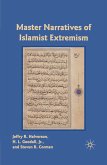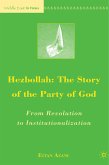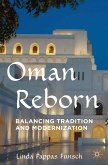Dieser Download kann aus rechtlichen Gründen nur mit Rechnungsadresse in A, B, BG, CY, CZ, D, DK, EW, E, FIN, F, GR, HR, H, IRL, I, LT, L, LR, M, NL, PL, P, R, S, SLO, SK ausgeliefert werden.
"Counter-Narratives brings together some of the finest new scholarship on the Arabian Peninsula. The contributors offer a rich analysis of social identity, political belonging, and historical transformation in Saudi Arabia and Yemen. The book illuminates the differing roles of imperial powers, local hierarchies, intellectual reformers, oil companies, and other actors in shaping the region's modern politics. Conventional images of a world of tribes, rulers, and oilmen give way to finely textured interpretations of one of the most critically important areas of the contemporary world." - Timothy Mitchell. Professor of Politics, New York University









